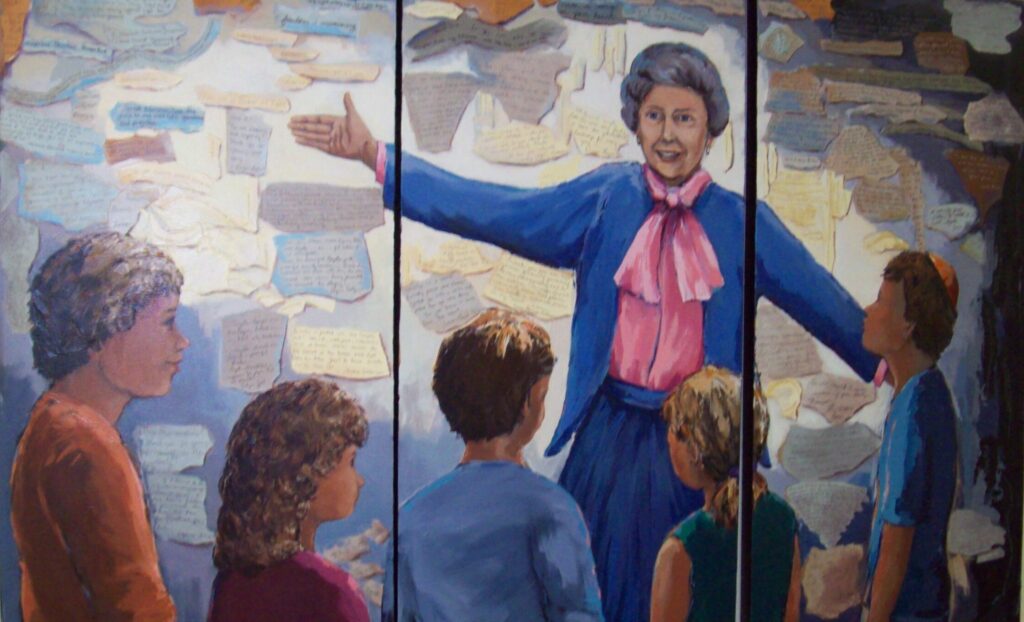Jola Gross’s poem dictates her thoughts and feelings she has regarding her tattoo and, thus, her reasoning behind keeping her tattoo. Ms. Fishman wanted this poem to show strength and vulnerability, as Ms. Gross is only human. The poem has no set format, which was a way to show that Ms. Gross was in charge of her own poem, not merely following guidelines pre-set for her. The first two stanzas contain three lines, and the rest four are associated with her interview with Mr. Boder. Ms. Gross starts off the interview a tad hesitant to divulge but then gains comfort and begins to open up more.
One line to pay close attention to is, “It cannot disappear.” Ms. Gross states this in her interview with Mr. Boder when talking about her tattoo. He asks her, “Will it disappear,” to which she replies, “No.” He then asks, “It cannot disappear?” she replies again, “No.”9 Another line to take note of is, “My life meaningless/ but somehow worth more.” Ms. Fishman wrote this to explain that Ms. Gross was chosen to be numbered, in contrast to those who were immediately killed, seen as serving no purpose and not worth a tattoo. Thus, Ms. Gross knows that her life means nothing to them, but somehow, it means more than the other individuals. Ms. Fishman instantly thought of Primo Levi while writing this. Mr. Levi writes about how the thought that he “might be alive in the place of another, at the expense of another” haunts him (pg. 82). Thus, Ms. Fishman gathered that while Ms. Gross isn’t as troubled as Levi was regarding shame, she still feels those inner conflicting emotions of “why was my life worth more?” Her questions aren’t for the Nazis, as their reasoning is obvious: she was physically stronger, healthier, and thus she would be able to withstand the labor they forced upon her. Her questions are about a higher power or whoever dictates life and death.
When Mr. Boder asks if many people removed their tattoos, Mrs. Bondy replies, “No, almost none of them.”7 Thus, the norm was to keep the tattoo, as Ms. Gross did. Some got cover-up tattoos, but the majority simply kept the numbers. It is important to understand that the Holocaust was unique to each survivor, and thus, the process of deciding whether or not to keep the tattoo is different for each survivor.
MIRROR
I look in the mirror and see
A reflection, an image
One that is purely me.
Every inch of my skin
My story it tells
The horrors that have been.
Specifically chosen
For the privilege of pain
Everything to lose
And nothing to gain.
The numbers
To them a mere four
My life meaningless
Yet somehow worth more.
7768
not clouded in fear
a part of me
It cannot disappear.
Aged thirty-six now
The tattoo remains
It is one with me
And we are the same.
